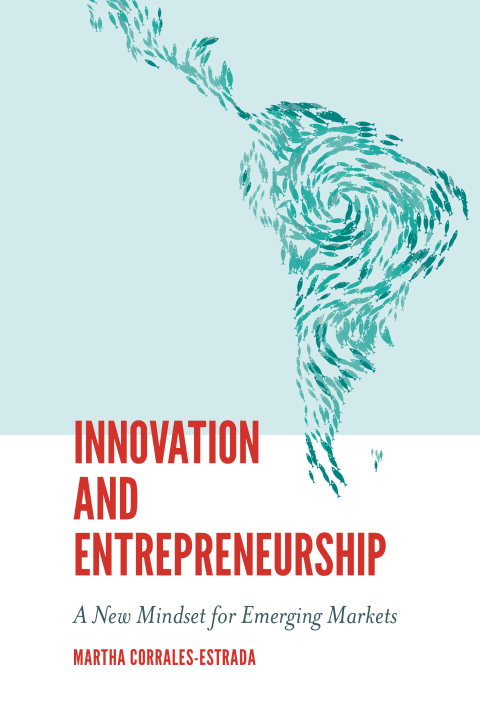Description
Efnisyfirlit
- Cover
- Title
- Copyright
- Contents
- List of Contributors
- Endorsements
- Foreword
- Chapter 1. Lean Foresight
- Abstract
- Introduction
- What is Foresight?
- Introducing Lean Foresight
- Frame
- Explore
- Envision
- Design
- References
- Chapter 2. New Approaches and Theories of Entrepreneurship
- Abstract
- Introduction
- The Jack-of-All-Trades Theory
- The Mezzanine Theory
- The O-Ring Theory
- The Theory of Resources and Capabilities
- Entrepreneurial Bricolage
- The Process-based Theories
- The Feedback Loop Theory
- The Theory of Effectuation
- The Theory of the Optimal Triangle
- References
- Chapter 3. Startup Path: The Development of the Entrepreneur and His/Her Journey in Creating a Startup
- Abstract
- Introduction
- Venture Creation Process
- Startup Path (SP)
- General Cosmos Overview
- Description of the “General Cosmos Overview”
- Plane
- Dimensions
- Elements
- Units of Measure
- Startup Path
- Loops
- Tools
- Entrepreneurship Competencies
- Case Study: PhD Talks
- Conclusions
- Future Research Lines
- References
- Chapter 4. The Entrepreneur and the Types of Entrepreneurship
- Abstract
- Introduction
- Entrepreneurship Process
- The Idea
- Getting Started
- Mission & Vision
- Milestones
- Validation
- Pivoting
- Is the business really a business?
- Funding
- Types of Entrepreneurship
- Entrepreneurial Typology
- First Stage
- Second Stage
- Third Stage
- Fourth Stage
- The Economic Aspects of a Search Fund
- Capital of the Investor
- How to Select a Company?
- Mini Case: Agua Fria
- The Co-founder: Jose Pablo Fernandez was CEO and Co-founder of Agua Fria
- Mindset for Entrepreneurship
- Domo Capital Creation
- Challenges and Opportunities
- Agua Fria’s Collaborators
- Agua Fria: The Business
- Agua Fria’s Business Vision
- Capabilities, Strategies, Channels and Value Creation
- Next Steps Ahead
- Chapter 5. Social Entrepreneurship: A Quick View of the Basics
- Abstract
- Introduction
- Defining Social Entrepreneurship
- The Predominance of a Social Mission (Social and Environmental Aspect)
- Innovation Aspect
- Using Market Forces to Generate Income (Economic Aspect)
- Tools in Social Entrepreneurship
- Design Thinking
- Social Business Model Canvas
- Systems Thinking
- Impact and Metrics of Social Value Creation
- Impact Reporting and Investment Standards (IRIS) and the Global Impact Investing Network
- B-lab Assessment
- Social Entrepreneurship Ecosystem
- Case Hábtiva (Housing for the Low-Income Sector)
- Questions for Discussion
- Student Challenge
- References
- Chapter 6. Types of Innovation
- Abstract
- Introduction
- The Configuration (Green)
- The Offering (Orange)
- Alestra/Axtel Case: Innovation as a Process and a Growth Strategy
- Beginning of the Competition in the Telecommunication Sector
- Change in the Landscape of the Telecommunication Market
- First Innovation Process: Strategic Transformation of the Company (2002–2006)
- Second Innovation Process: Enriching the Value Proposition Through Integrated Value Solutions (2007–2011)
- Third Process of Innovation: The Convergence of the Telecommunications and Information Technology Industries (2011–2015)
- The Beginning: Leadership, Culture, and Organization
- Strategic Innovation and Continuous Improvement
- Continuous Improvement: The Small Cog
- Strategic Innovation
- Metrics, Achievements, and Awards
- Platform to Manage ideas and Challenges
- Innovation Centered on People (Design Thinking) and the Innovation Hub
- Innovation as a Service
- Opportunities Triggered by Forces of Change
- Innovation Challenge for Retailers
- References
- Chapter 7. Sustainable Business Models and Value Creation
- Abstract
- What is a Business Model?
- When Profit is the Main Purpose
- When Social Impact is the Main Focus
- When Profit and Social Impact are Equally Important
- How to Prototype and Visualize Business Models: The Canvas Framework
- The Naranya Case
- How to Start a Prototype, Designing a Business Model?
- NARANYA’s Business Model Evolution
- NARANYA’s 3.0 New Offerings
- Scaling and Building the Model
- Conclusion
- Business Model Challenge: Electronic Health Records’ Implementation and Adoption
- Why are these Factors Impediments or Barriers for EHR Adoption?
- Challenge
- References
- Chapter 8. Leadership and Culture of Innovation
- Abstract
- Introduction
- Leadership
- Leaders Versus Managers
- Perspectives of Leadership
- Leadership and Innovation
- Strategic Leadership
- Innovation Leadership
- Leaders of Innovative Teams
- Individual Characteristics and Innovation
- Personality
- Knowledge
- Cognitive Abilities
- Intrinsic Motivation
- Organizational Characteristics and Innovation
- Variables that have a Positive Relationship with Innovation
- Variables that have a Negative Relationship with Innovation
- Culture of Innovation
- Denison’s Model of Organizational Culture
- Involvement
- Consistency
- Adaptability
- Mission
- Maturity Innovation Culture Model
- Strategic Direction
- Standardized Processes and Practices
- Innovative, Flexible, and Human Organizational Culture
- Organizational Architecture
- Key partners for Innovation
- Sustainable Innovation Culture
- Conclusion
- Learning Activities and Websites
- Discussion Questions
- Individual and Group Activities
- Challenge
- Questions
- Mini Case: Vector Case de Bolsa (Mexico)
- Discussion Questions
- Note
- Acknowledgments
- Abbreviations
- Key Terms
- References
- Chapter 9. Legal Aspects of a Venture Capital Financing
- Abstract
- Introduction
- What Kind of Legal Entity to Choose?
- Legal Vehicles for VC Investments
- VC Financing
- Conclusion
- References
- Chapter 10. Startup Capital
- Abstract
- Introduction
- Government’s Role in Stimulating Venture Capital for Growth
- Mexico and Its PEVC Challenges
- Strategy to Develop the VC Market
- Extending Runway between Equity Rounds
- Complementing an Equity Round
- References
- Chapter 11. Techno Parks, Innovation, and Entrepreneurial Ecosystems
- Abstract
- Introduction
- Ecosystems Around the World
- Definitions and Elements
- Key Indicators
- Outstanding Challenges and Challenges
- Entrepreneurship Ecosystems
- Main Elements and Relationships
- Platform to Build an Ecosystem
- Characteristics of an Entrepreneurship Ecosystem
- Technology Parks
- Description
- Goals
- Definition and Objectives
- Types of Technological Parks
- The Role of Technology Parks in Innovation and Entrepreneurship
- Innovation and Industrial Clusters
- Background of the Clusters
- Types of Clusters
- Building an Industrial Cluster
- The Role of Clusters in Innovation and Entrepreneurship
- Building an Innovation and Entrepreneurship Ecosystem
- Impact of an Entrepreneurship Ecosystem
- Ecosystems and Their Impacts
- Glossary of Entrepreneurship
- References
- Chapter 12. The Digital Wall and Digital Transformation
- Abstract
- Introduction
- Cases in Which Digitization is Already Transforming Paradigms
- Retail Trade
- Insurance Industry
- Financing
- Education
- Health
- Transport and Logistics
- Tourism
- What Can Citizens Do?
- What Can the Government Do?
- What Can Universities Do?
- What Can the Private Sector Do?
- Index





